Bracing the UK food system for multiple shocks
Covid-19 is just the latest in a series of disruptions to the UK food system. Now is the time to build food system resilience against inevitable future shocks, says Dr Riaz Bhunnoo, Director of GFS.
Found 282 results for Extreme weather and resilience of the global food system.
Covid-19 is just the latest in a series of disruptions to the UK food system. Now is the time to build food system resilience against inevitable future shocks, says Dr Riaz Bhunnoo, Director of GFS.
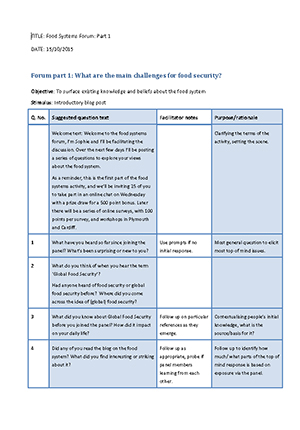
The GFS programme commissioned a panel of 600 members of the public to take part in engagement activities, exploring different aspects of food security research. This document details stimulus material for the food systems dialogue.
(You can view PDF documents by downloading a PDF reader. We recommend using Google Chrome or Mozilla Firefox web browsers.)
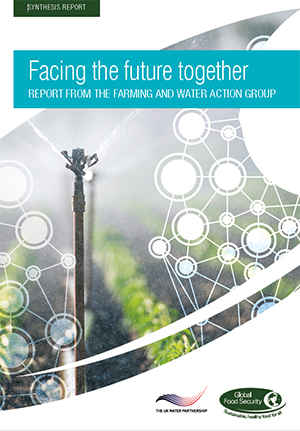
Water is a critical resource under threat, so recognising the risks will be vital to understanding how water use will change in the upcoming years. This synthesis report is an amalgamation of key findings from the three water sub-reports, produced by GFS and the UK Water Partnership.
(You can view PDF documents by downloading a PDF reader. We recommend using Google Chrome or Mozilla Firefox web browsers.)
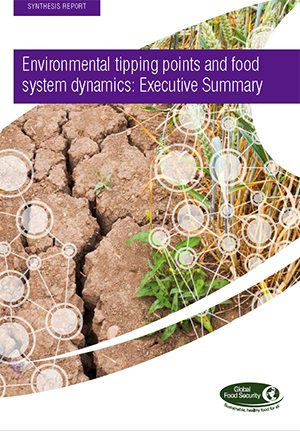
Environmental tipping points occur when a biophysical system shifts from one stable state to another, potentially bringing about changes in the provision of environmental goods and services. This report provides a summary of outcomes and recommendations from an inter-disciplinary and inter-sectoral working group considering potential impacts of tipping points within the food system.
(You can view PDF documents by downloading a PDF reader. We recommend using Google Chrome or Mozilla Firefox web browsers.)
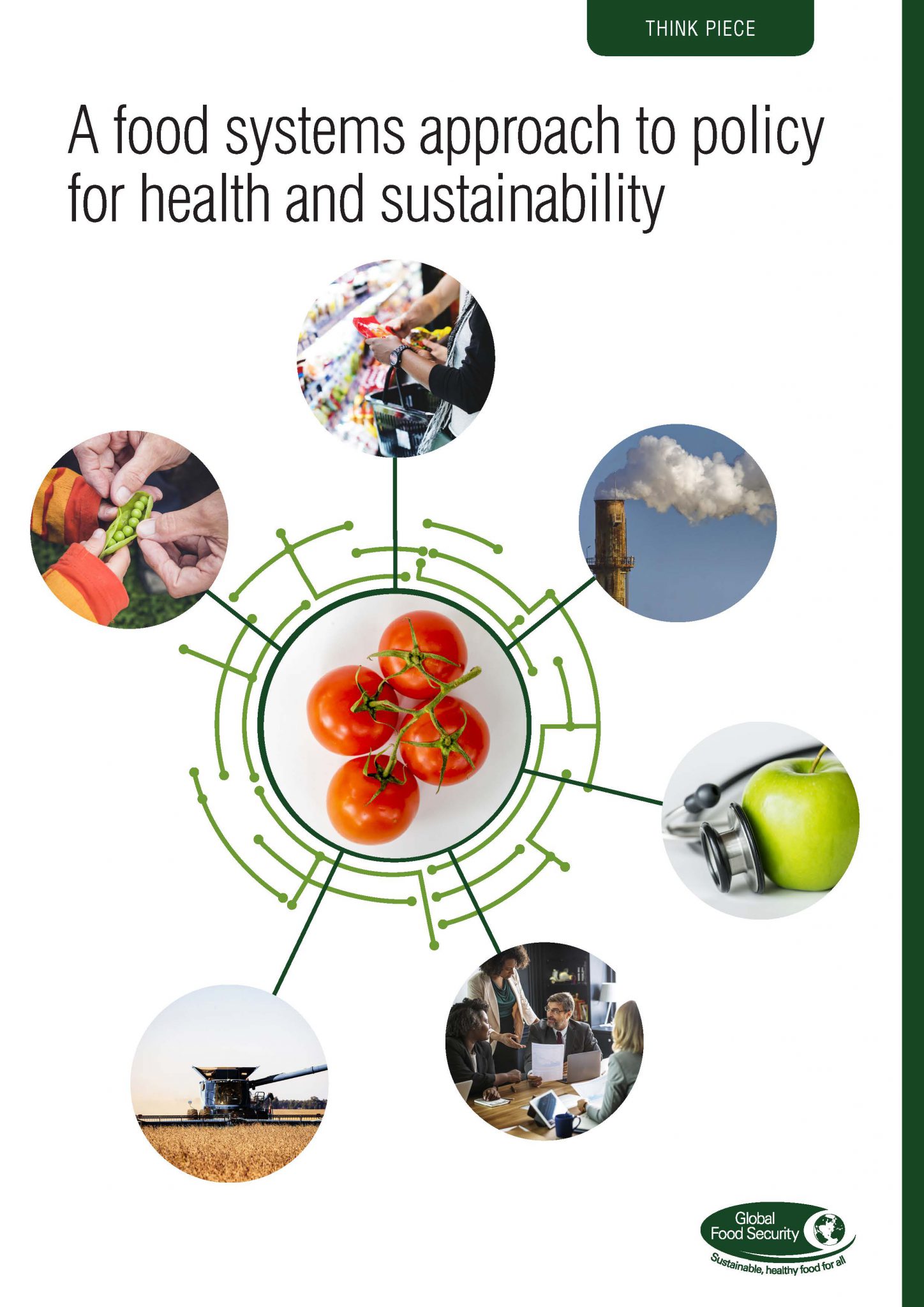
This report highlights the significant benefits for policymaking from a food systems approach. Thinking systemically and at an interdisciplinary level can help ensure that challenges are tackled from multiple perspectives and in a holistic way. Such an approach provides a way of identifying win-wins, managing trade-offs and mitigating less desirable outcomes, enabling stronger policy coherence across agriculture, nutrition, health, trade, climate and the environment, in both businesses and governments around the world.
(You can view PDF documents by downloading a PDF reader. We recommend using Google Chrome or Mozilla Firefox web browsers.)
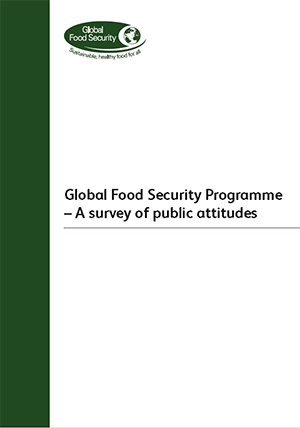
This report details the findings of a public survey, looking to benchmark public attitudes, opinions and understandings of global food security. This survey was the first stage in a programme of public dialogue, feeding public views, aspirations and concerns around global food security into the work of the GFS programme.
(You can view PDF documents by downloading a PDF reader. We recommend using Google Chrome or Mozilla Firefox web browsers.)
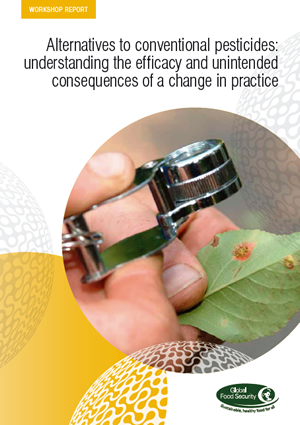
Pesticides provide numerous benefits, yet pressures on their use has led to industry exploring other viable options for pest, weed and disease management. This report examines the challenges of using alternatives to conventional pesticides, and highlights future research priorities for biopesticides and Integrated Pest Management strategies.
(You can view PDF documents by downloading a PDF reader. We recommend using Google Chrome or Mozilla Firefox web browsers.)
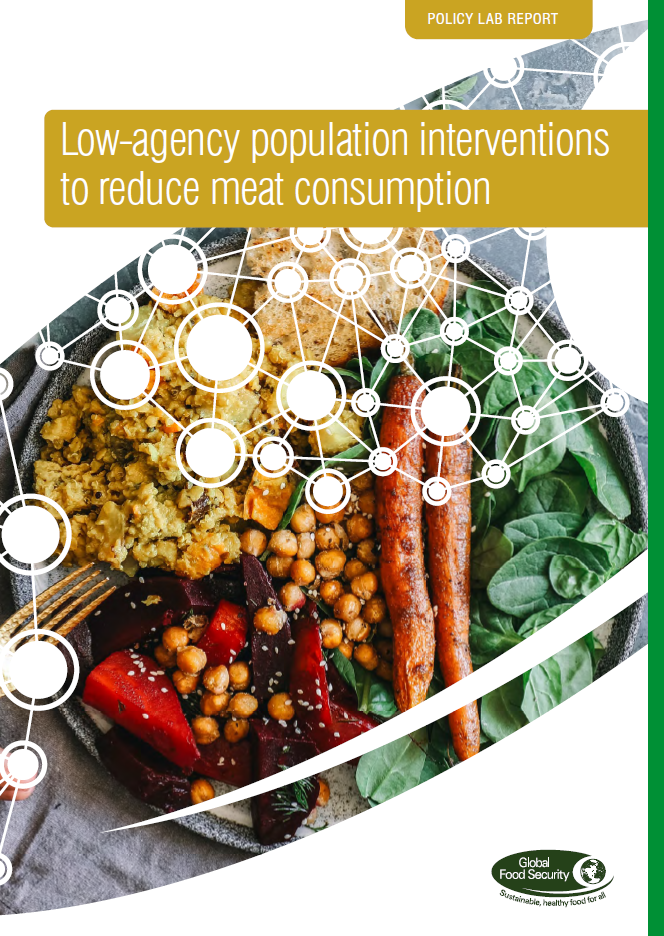
This report explores how low-agency population interventions can reduce meat consumption across the UK population. It contains an umbrella review of 44 systematic reviews to synthesise all the available evidence for the effectiveness of low-agency population interventions at reducing meat selection, purchase, or consumption. A critical assessment of the evidence is used to discuss the wider insights gained and the implications for policy and practice.
This work was funded by the Global Food Security (GFS) programme as part of its Policy Lab, in which postdoctoral researchers compete to write a policy-facing report for the programme. (You can view PDF documents by downloading a PDF reader. We recommend using Google Chrome or Mozilla Firefox web browsers.)
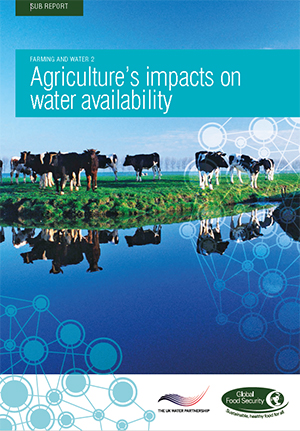
This sub-report details discussions of an interdisciplinary working group, coordinated by GFS and the UK Water Partnership. Their work explored the tensions between water availability and food production in the UK, identifying future challenges, knowledge gaps and potential methods for easing the pressure on water resources.
(You can view PDF documents by downloading a PDF reader. We recommend using Google Chrome or Mozilla Firefox web browsers.)
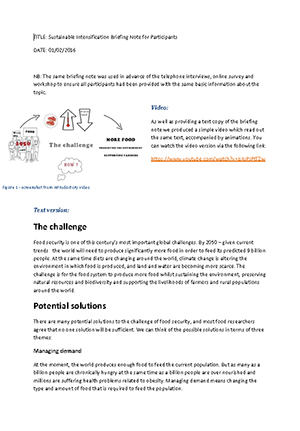
The GFS programme commissioned a panel of 600 members of the public to take part in engagement activities, exploring different aspects of food security research. This document details stimulus material for the sustainable intensification dialogue.
(You can view PDF documents by downloading a PDF reader. We recommend using Google Chrome or Mozilla Firefox web browsers.)
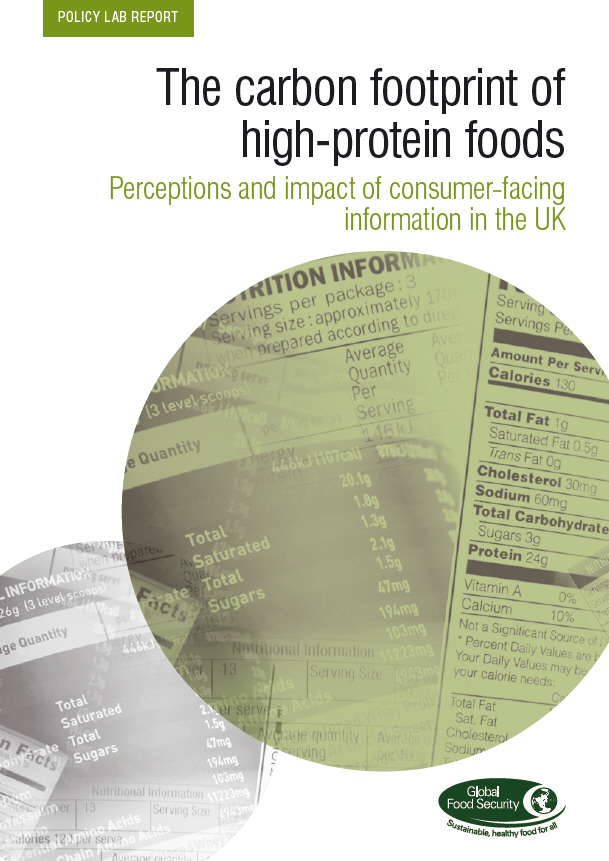
This report explores how UK stakeholders and consumers perceive consumer-facing information that shows the carbon footprint of high-protein food products. The study was funded by the Global Food Security programme as part of the Policy Lab, in which post-doctoral researchers compete to write a report for the programme.
(You can view PDF documents by downloading a PDF reader. We recommend using Google Chrome or Mozilla Firefox web browsers.)
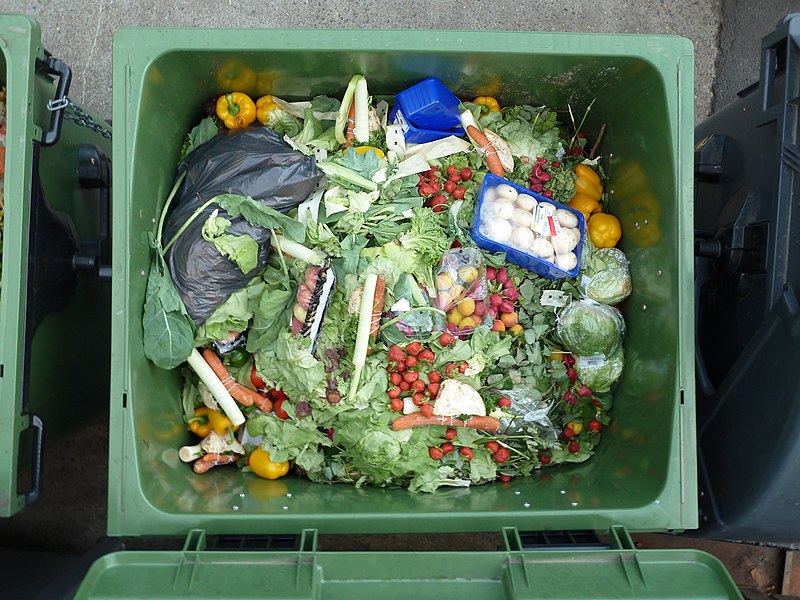
The Global Food Security programme is inviting applications from early career researchers to take part in the 2021 Policy Lab on reducing food loss and waste with a focus on reducing emissions from the food system and contributing to net zero goals.